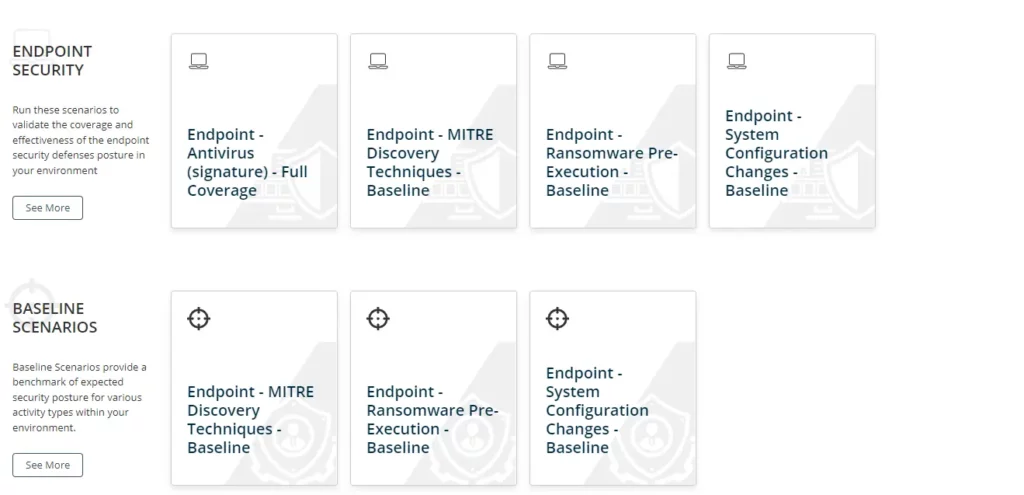
2023-12-19 21:0:0 Author: securityboulevard.com(查看原文) 阅读量:6 收藏
Endpoint detection and response (EDR) tools are essential for safeguarding an organization’s endpoints, such as computers, servers, and mobile devices. With adversaries leveraging increasingly sophisticated techniques, choosing the right EDR solution that fits your organization’s needs is more critical than ever. The challenges, requirements, and risk tolerances of any business are crucial factors in selecting the most suitable tool for your specific IT environment. Opting for a top-tier or best-in-class EDR product may seem like the most straightforward strategy, but there is more nuance when it comes to understanding which is most effective for your organization. So how do organizations looking for a new EDR tool perform the most objective evaluation to ensure a comprehensive level of protection against today’s evolving threats?
Read the blog: People, Time & Money – Making the Most of Your Security Investments
Using Objective Performance Data to Compare Solutions
It is important to be as objective as possible when conducting a thorough EDR bakeoff assessment. Using a breach and attack simulation (BAS) tool like SafeBreach gives your team the opportunity to analyze the performance of each tool, cutting through the marketing language and assumptions and allowing for a direct comparison within the actual environment you are seeking to protect.
Here are some steps you should consider when performing a comprehensive and objective EDR bakeoff evaluation:
Define Your Objectives
Prior to beginning any evaluation, it’s important to determine what problems you are trying to solve by onboarding a new EDR tool. There needs to be a clear understanding of your security gaps, any compliance or regulatory requirements that need to be accounted for, and assurance that you do not already have a tool that already has the ability to meet these needs. Determining these objectives cannot be performed in isolation. Security teams should consult necessary stakeholders and create a comprehensive list of the challenges and demands that the new tool should meet. Based on this information, a specific criterion for evaluation can be determined with a list of critical capabilities that the tool must possess, including a rating scale that is weighted based on each of the critical capabilities that you want in your future EDR tool.
Selecting EDR Candidates and Setting Up the Evaluation
When choosing EDR candidates for a bake off, it’s important to consider the overall organizational security maturity and any budget constraints. This will help determine candidates that are most suitable for your unique challenges and price points. Once the objectives are finalized and the candidates are chosen, determine how you will validate the effectiveness of each EDR tool. When using a BAS tool, you can configure the available integrations between the various EDR tools and the BAS platform to ensure that you can accurately monitor their performance and identify gaps without having any impact on your production systems.
Determining Attacks to Run
When testing the solutions, it’s best to validate the performance of each EDR tool in as realistic a manner as possible. This is to ensure that, when faced with a real threat, the EDR tool can provide adequate protection against today’s evolving threat landscape. A BAS tool like SafeBreach will help you replicate realistic attacker behavior in a safe and contained manner without impacting your production environment. Your team will be able to gather a substantial amount of data and results based on real-world attacks that can help you minimize risk and make informed decisions.
Reporting Results and Decision Making
Once you’ve run your tests, gather metrics and data on the detection rates, false positives, response times, and any other relevant performance indicators for each EDR solution. Using the BAS platform, you can generate highly customized reports that summarize the findings of the bakeoff. You can leverage this reporting to provide an analysis of how well each EDR solution performed in the context of your organizational requirements. As you assess the results, consider factors such as effectiveness, ease of integration, and impact on your production network and other security tools.
Using SafeBreach for EDR Bake-offs
The SafeBreach BAS platform can facilitate a straightforward and objective approach for your organization to select the most suitable EDR tool. With SafeBreach, teams can execute real-world attack scenarios against production environments (in a safe and controlled manner) to verify that the EDR is appropriately configured and functioning as advertised. In addition to providing an extensive playbook comprising over 30,000 realistic attacks, the platform also offers several pre-built endpoint-specific scenarios that you can leverage to effectively assess the performance of the EDR and provide unambiguous visibility into potential EDR gaps throughout the assessment. Additionally, the platform offers several customizable report templates that can help you communicate the bakeoff results to all involved stakeholders, allowing them to make an informed decision that will help optimize your overall security posture.

Olin, a global manufacturer and SafeBreach customer, recently shared their insights on how they leveraged the SafeBreach platform to perform a thorough EDR bakeoff. This discussion highlighted Olin’s thought process behind choosing the correct EDR for their organization, including:
- How they created the criteria for choosing EDR solutions that aligned with their security goals
- Which scenarios within the SafeBreach platform were designed to challenge EDR solutions and assess their capabilities under controlled conditions
- Best practices for executing their tests
- How they communicate results with the vendors they evaluated
- How they could leverage what they discovered to perform bakeoffs with other security controls in their stack
View the discussion to gain valuable insight on performing a realistic EDR bakeoff with the SafeBreach platform or schedule a consultation with a SafeBreach team member for a live demonstration. If you are an existing SafeBreach customer and would like to try this in your organization, please reach out to your customer success representative.
如有侵权请联系:admin#unsafe.sh